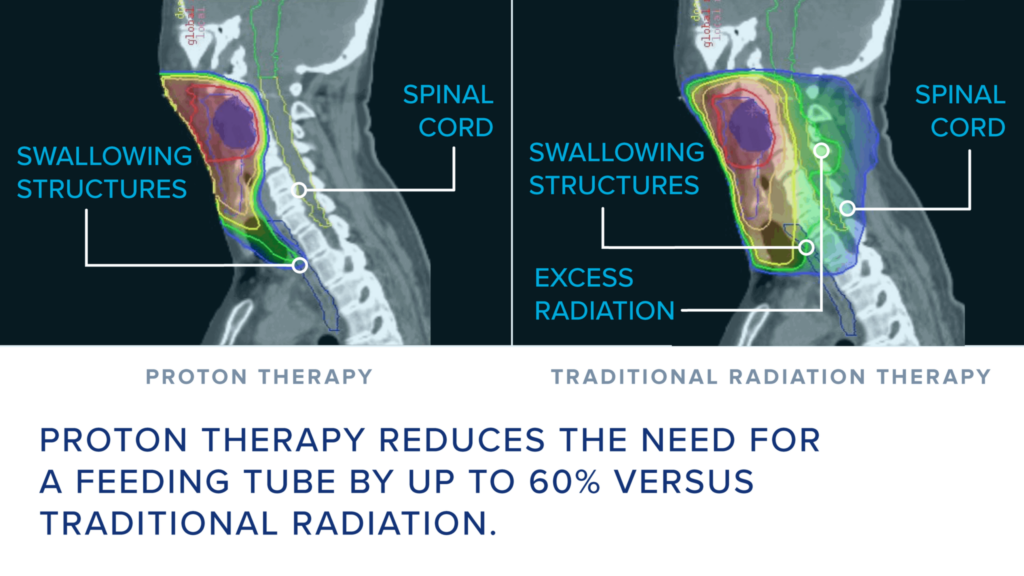Precision in Cancer Treatment
Cancer treatment has made significant strides over the years, and one of the most promising developments is the use of proton therapy for head and neck cancer. Proton therapy, a highly precise form of radiation therapy, is gaining recognition for its ability to target tumors with unparalleled accuracy while minimizing damage to surrounding healthy tissues. In the case of head and neck cancer, this innovative treatment approach offers new hope and improved quality of life for patients.
Understanding Head and Neck Cancer
Head and neck cancer refers to a group of cancers that occur in the mouth, throat, nasal cavity, or salivary glands. These cancers can affect critical functions like swallowing, speaking, and breathing, making them particularly challenging to treat. Common risk factors for head and neck cancer include tobacco and alcohol use, human papillomavirus (HPV) infection, and a family history of the disease.
Conventional Radiation Therapy vs. Proton Therapy
Traditional radiation therapy has been a standard treatment option for head and neck cancer. However, it has limitations when it comes to minimizing damage to healthy tissues surrounding the tumor.
Conventional X-ray-based radiation delivers radiation beams that penetrate through the tumor, affecting both the cancerous and healthy tissues in their path. This can lead to unwanted side effects such as difficulty swallowing, dry mouth, and changes in taste.
Proton therapy, on the other hand, offers a significant advantage. It utilizes protons, which are charged particles, to deliver radiation precisely to the tumor site. Unlike X-rays, protons release most of their energy at the tumor site and then stop, sparing healthy tissues beyond the tumor.
This precision is particularly beneficial when treating head and neck cancers, where critical structures like the salivary glands, vocal cords, and swallowing muscles are in close proximity to the tumor.
Perhaps the most notable advantage of proton therapy is its ability to reduce side effects. Patients often experience less damage to salivary glands, leading to better preservation of saliva production and a reduced risk of chronic dry mouth. This improvement in quality of life is crucial for patients’ ability to eat, speak, and maintain a sense of normalcy during and after treatment.

Improved swallowing function may also be a benefit of proton therapy for head and neck cancer. Proton therapy’s precision means less damage to the muscles responsible for swallowing, resulting in fewer difficulties with eating and swallowing. Patients are more likely to maintain their ability to enjoy the foods that they love.
Proton therapy minimizes the exposure of radiation to healthy tissue, reducing the risk of secondary cancers and other long-term side effects. Clinical studies have shown that proton therapy may provide outcomes that are more beneficial than conventional radiation therapy in treating head and neck cancer.
Proton therapy is revolutionizing the treatment of head and neck cancer by offering a highly precise and effective option that minimizes damage to surrounding healthy tissues. This innovative approach not only improves the chances of successful treatment but also enhances the quality of life for patients during and after therapy.
Oklahoma Proton Center has been treating head and neck cancer patients with proton therapy since 2009. The center has treated nearly 5,000 cancer patients over the past 14 years and continues to be a leader in the field of radiation oncology.
Dr. John Chang, the Oklahoma Proton Center Medical Director, is a noted expert in the field of head and neck cancer treatment and is the chairman of the Head and Neck committee of the Proton Collaborative Group, a leading clinical research organization.
“I have had the opportunity to treat hundreds of head and neck cancer patients during my two decades as an oncologist. Proton therapy really has been transformational in my ability to manage side effects for these patients,” said Dr. Chang. “We are fortunate to have this cutting-edge technology in Oklahoma City.”
As research and technology continue to advance, proton therapy is likely to become an increasingly prominent tool in the fight against head and neck cancer, offering renewed hope to patients facing this challenging diagnosis. Patients or caretakers with questions about proton therapy as a treatment option for head and neck or other cancers, can reach out to Oklahoma Proton Center to speak with a clinical expert.

